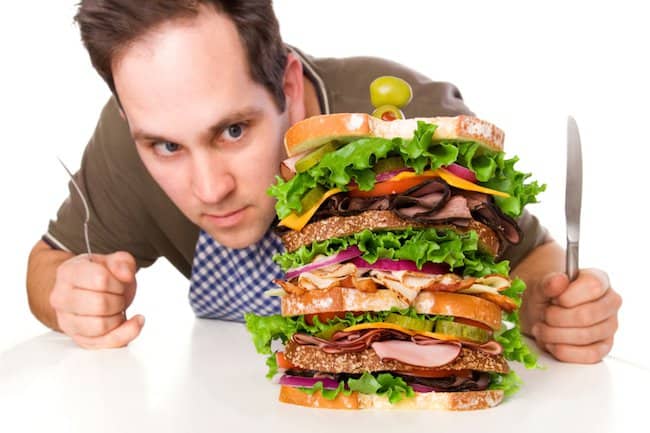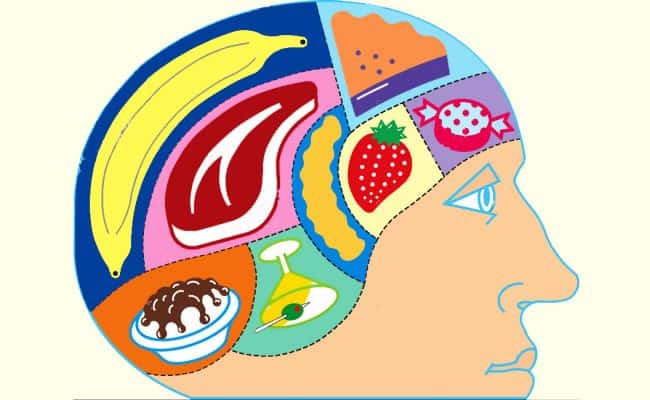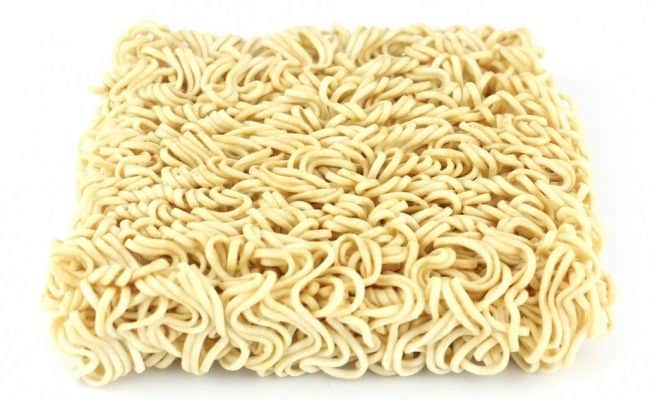
Binge eating can lead to weight gain, the development of diseases associated with overweight and obesity, poor diet and low self-esteem. It can also be a sign of underlying problems such as depression or an eating disorder. For most people, binge eating is something they know is not good for them; however they are unable to kick the habit.
So why do so many of us continue to binge eat when we know it is bad for our health and body?
Why binge eating happens
Binge eating habits can develop for numerous reasons. For some people food is a coping mechanism and binging is what they do when they feel depressed, down or under stressed. For others it may take the form of an addiction. Similar to more widely accepted addictions such as alcohol and drugs, an addiction to food can make it impossible to give up eating and lead to binges on unhealthy foods.
Sugary, fatty and salty foods are the common culprits for food addiction and binges, and research is now suggesting that the effects that these compounds have on our bodies may play a part in addiction and lead us to eat more of these types of foods.
When we eat these types of food, the brain releases hormones that make us feel good, which therefore leads us to want more in order to repeat the experience. The hormone dopamine is also released which can motivate us to eat more of a particular food.
Once you get used to the good feeling after eating certain foods it can be difficult to stop, particularly if you feel unhappy or stressed as food may provide momentary release from these feelings.
Dieting, particularly extremely restrictive diet, can also lead to binge eating. When you are depriving yourself of all the pleasurable foods you enjoy, in addition to restricting the nutrients your body requires to function properly, you are more likely to completely fall off the wagon and have an episode of binging on all the wrong foods.
Binge eating is also often seen as part of an eating disorder such as Bulimia Nervosa, where large quantities of food are eaten and then purged through vomiting, laxatives or excessive exercise. This type of behavior can be very dangerous to health and should be treated seriously. Bulimia sufferers often do not appear underweight as in other forms of eating disorders, but that does not mean that they are not doing themselves damage.
How to stop binge eating
Rather than simply starting a diet, breaking a binge eating habit means completely changing the way you eat to eradicate old, harmful habits and develop new healthy ones.
For many people it is not a case of just saying no to food, but requires a deeper look into the underlying causes of the binge eating in order to fix the problem in the long term.
Don’t restrict your diet excessively
When you cut all the foods you enjoy from your diet you are far more likely to cave in and overeat unhealthy foods. Rather than restricting your diet to extreme levels in a bid to lose weight or be healthier, follow a more flexible plan that allows you a few treats. By having a little of what you enjoy regularly, you are far less likely to binge eat.
Keep tempting foods out of the house
If you tend to binge on certain foods, keep them away from you where possible to reduce the temptation. Sometimes when a craving hits, the fact that you have to leave the house and go and buy the food will be enough to deter you.
Get the support of others in your house or workplace and ask that they try to keep tempting foods out of the house too or at least keep them out of sight.
Don’t eat directly from the box/bag
If you eat directly from the food package, you are far more likely to finish off the entire packet in one sitting without really noticing. Instead, try portioning out an appropriate amount of the food into a separate bowl or container and limit yourself to this portion. Put the rest of the packet out of site and seal it well so some effort is required to go back for more.
Learn to differentiate between hunger, cravings and thirst
It is easy to mistake cravings for hunger or thirst, meaning that you eat even though you are not hungry. If you feel you are hungry, first drink a large glass of water and wait ten minutes or so to rule out thirst, then consider what your feel like eating. If you are truly hungry, you will happily eat healthy food such as vegetables, nuts or fruit.
If none of these appeal to you and all you want is a bar of chocolate, it is likely that you are not really hungry and do not need to eat. It is important to be in tune with your body to recognize when food is needed and when you are eating for different reasons.
Distract yourself from binges
If you feel a craving that is likely to lead to a binge coming on, distract yourself by giving yourself something else to do. Go for a walk or have a bath to take your mind off food for a while and chances are the cravings will pass. When you are turning to food for reasons such as stress or depression, these techniques may also be a helpful non-food related way to relax and unwind.
Focus on eating
When you are eating, make sure that it is the only thing you are doing. Switch off the TV, put away your work and concentrate on the task at hand. By focusing on the food in front of you and what is going into your mouth, you are unlikely to unconsciously overeat without realizing it. (See also: What is mindful eating)
Know your trigger foods
If a certain food triggers a binge for you, it may be wise to avoid that food altogether. Whilst some people may be able to happily eat a little of the food, for those prone to binge eating, a small amount of that particular food may lead to a little more, and then a little more, until suddenly the entire block of chocolate has disappeared. Look at your past binge episodes and learn from them by avoiding foods that you commonly binge on.
Don’t skip meals
Excessive hunger caused by skipping meals can lead to binge eating episodes. When your blood sugar levels are low and you are lacking in energy, you are less likely to eat sensible healthy foods in appropriate portions and more likely to choose quick sugar and fat fixes.
You are also more likely to binge on these foods as being very hungry tends to cause you to eat faster, leaving you less time to become aware that you are full. (See also: How many meals should you eat a day?)
Talk about it
If you are concerned you are developing binge eating habits, talk about it with a trusted friend or family member. Having someone there to support you and distract you from food when you feel you might binge can be a key factor in overcoming unhealthy habits.
Get professional help
If binging is taking over your life and you cannot seem to regain control, it may be time to contact a professional. Binge eating may not be only about the food or body image, but can also be linked to many other physiological issues which can be difficult to overcome on your own.
A dietician may help you to develop healthier eating habits and see your body in a better light; whilst a physiologist or councilor may be able to help you investigate the underlying issues that are causing you to binge. Remember that you do not have to fight the issue alone and there is no shame in asking for help to get through what can be a difficult condition.
Recognizing binge eating behavior early and taking a stand against it quickly can prevent more negative consequences that can develop after long term binge eating.
References used in this article











Mira says
Thanks for this article. Very interesting to read, I have reactive hypoglycemia and I have also cortisol levels high now. I’m constantly hungry, tired and something like that. My sugar is quite control because I eat every 2-3 hours but this elevated cortisol makes me easily gain weight. I’m like a food monster now I could eat and eat. I’m a normal weight but this hungry is so bad. I sleep poorly which makes cortisol increase more and more. Does anybody has health problems which has caused your binge eating?